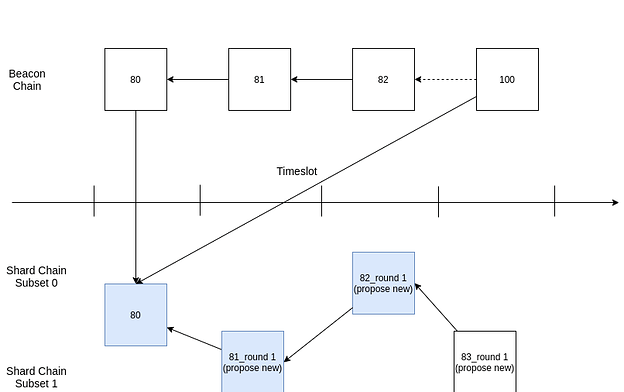In this topic, we are presenting an improvement in block production that would help address:
-
The overhead of message exchange between validators will be cut in half by splitting the committee into two subsets.
-
This opens up the possibility of increasing the number of the committee, which makes Incognito chain more decentralized.
-
The chain retains the same level of security. This is guaranteed because each group will verify the correctness of the other by appending its blocks to those of the other.
Protocol
For each shard, only a subset of its committee list will be picked to create a new block, as the following rule:
-
Dividing the committee list into two subsets, one for committees with odd indexes in the list and the other for committees with even indexes in the list.
-
Two subsets of committees will take turns to create a new block as the round-robin method.
In this version, a full committee list will be split equally into two subsets. All validators with even indexes will be grouped into Subset 0 or Even Subset and the rest is grouped into Subset 1 or Odd Subset.
Illustration
The Above picture illustrates 2 subsets from shard0 take turn to create block:
- Block 80,82,… is created by subset 0
- Block 81,83,… is created by subset 1
Thank you!

